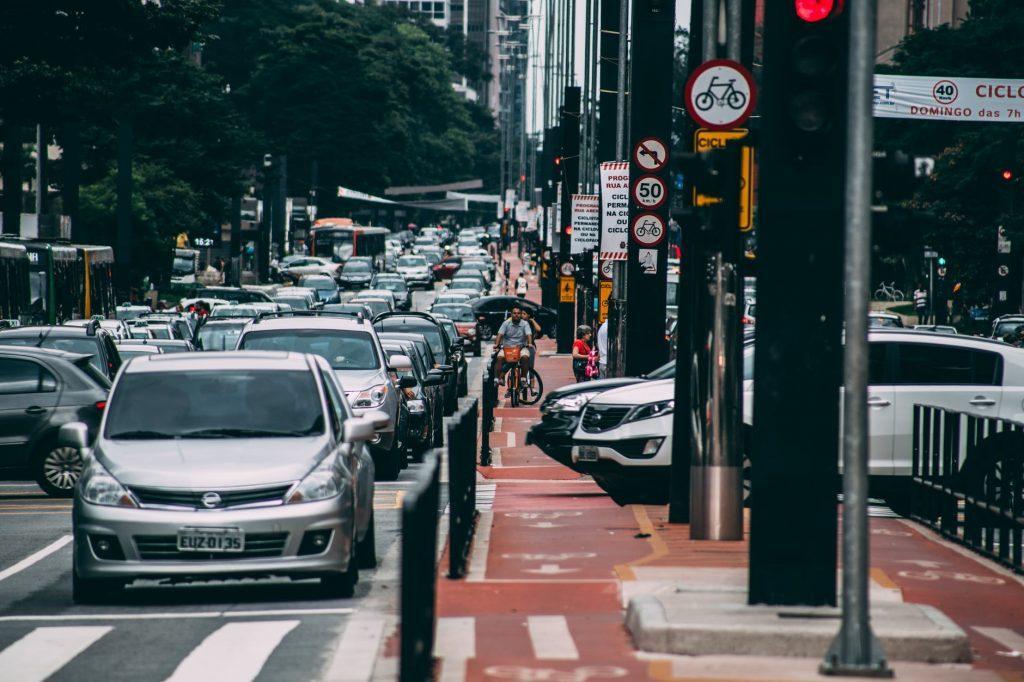By Ivan Ariza
More deliveries, higher expectations, greater emissions: This is the troubling state of play facing the last mile. With the pandemic triggering an e-commerce “turning point” and prompting more customers to buy products online for same-day, next-day delivery, the real-world impact is a ballooning carbon footprint.
The World Economic Forum (WEF) predicts that, without intervention, the number of delivery vehicles in the top 100 cities globally will increase by one-third until 2030. As a result, emissions from delivery traffic will increase by 32% and congestion will rise by over 21%, producing an additional 11 minutes of commute time for each passenger every day. And yet, by the same year of 2030, the United Nations is calling for urgent action to combat climate change and its impacts.
Clearly, something’s got to give. Logistics cannot fulfil rapid turnaround times in good faith if the result is clogging cityscapes and spiking emissions. And while the pandemic offers some examples of greener last mile practices—like dark stores and fulfilment centers closer to the customer—the industry is yet to commit to more sustainable practices. Let’s look at why it’s now time to get serious about sustainability in the last mile.
The Last Mile Today
Parcel delivery vehicles double-parking and blocking lanes. Food delivery services delivering in increasingly shorter time windows. Couriers adding to congestion. This is the reality of today’s last mile—and it’s expanding.
Demand is soaring and last mile delivery is expected to grow by 78% globally by 2030. This shift is largely driven by the continued development of e-commerce across emerging and established markets as well as the preference for same-day, next-day delivery.
However, with delivery numbers skyrocketing and consumers expecting faster delivery, we are seeing a sacrifice of sustainability for speed.
The Sustainability Impact
The last mile currently opts for convenience over sustainability, and this is especially so with same-day, next-day deliveries. Faster deliveries do not typically result in optimization as the shorter time window prevents logistics companies from consolidating orders. As a result, they risk sending delivery trucks at less than full capacity, thus precipitating the need for more journeys and increasing emissions.
This is a problem as cities face increasing urbanization at an unprecedented rate. The global population is expected to reach 8.5 billion in 2030, of which 60% will be living in cities. And if the last mile continues to grow at current rates, the extra vehicles required to fulfill these orders will compound what the WEF regards as the two biggest threats to urban quality of living: congestion and pollution.
As urban density increases, congestion increases exponentially and negatively impacts emissions. For example, New York, Chicago and Los Angeles have seen congestion increases of 20–35% since 2010. Also, cities are responsible for 70% of global emissions, to which delivery vehicles add disproportionately high amounts compared to passenger cars.
Interestingly, the notion of speed at the sake of sustainability is falling out of favor with consumers. According to a new study, nearly half of consumers (48%) agree they are more conscious of how their online shopping behavior impacts the environment than they were before the pandemic. This echoes findings from Gartner, who predict that consumers will reject rapid delivery for the vast majority of their purchases over the coming years. In fact, the firm believes that consumers will soon hold e-commerce retailers accountable for the environmental impacts of deliveries while continuing to prefer free shipping—even if it means slower deliveries.
It’s worth mentioning that the pandemic has prompted some environmental improvements to the supply chain. For example, some stores became fulfillment centers, and ship from store and curbside pickup emerged. However, most of these pandemic-prompted changes were not intended for the long term. Lasting change will require public and private players to work together to incentivize greener choices, rethink delivery methods and harness data and analytics.
Solutions To Improve Sustainability
There is no silver bullet for sustainability in the last mile. Rather, reducing emissions and improving efficiencies will require an ecosystem approach that attacks the issue on multiple fronts.
First, new methods of delivery are required. The pandemic radically accelerated local or market-based fulfillment, permanently altering supply chains where inventory is placed closer to customers. Research shows that widespread adoption of this method could be huge. Accenture developed a robust model measuring the potential impact of local fulfillment centers for e-commerce. The analysis was revealing—the supply chain made possible by local fulfillment centers could lower last mile emissions between 17 and 26% through 2025.
Second, new technologies must be integrated. Tools like Artificial Intelligence and Machine Learning make it possible to act on real-time insights into consumer preferences and purchasing patterns. As a result, companies can innovate and optimize inventory and route management for a lower last mile carbon footprint.
Third, public and private players must come together to tackle this issue head-on. The WEF reports that cooperation between the two sectors could see deliveries during nighttime and before/after working hours, effective data-based connectivity solutions such as dynamic rerouting and load-pooling, as well as multi-brand parcel lockers and boxes. Such a scenario is forecast to reduce emissions by 30%, congestion by 30% and delivery costs by 25% by 2030 when compared to a “do nothing” baseline.
No single entity can create the sustainable last mile alone. It will take all ecosystem players working together in ways they never have before—from retailers and logistics companies to governments and consumers. It’s time for private and public players to get serious about sustainability in the last mile by tackling the problem together—one project at a time.
Link: https://www.dcvelocity.com/blogs/2-one-off-sound-off/post/53905-its-time-to-get-serious-about-sustainability-in-the-last-mile
Source: https://www.dcvelocity.com
